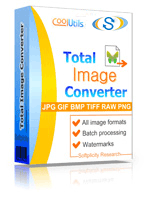1) Upload DCS file to convert
Drop files here, or Click to select
2) Set converting DCS to PDF options
3) Get converted file

 Total Image Converter
Total Image Converter
 JPEG, TIFF, PSD, PNG, etc.
JPEG, TIFF, PSD, PNG, etc. Rotate Images
Rotate Images Resize Images
Resize Images RAW photos
RAW photos Watermarks
Watermarks Clear interface
Clear interface Command line
Command line💾 Upload Your File: Go to the site, click on «Upload File,» and select your DCS file.
✍️ Set Conversion Options: Choose PDF as the output format and adjust any additional options if needed.
Convert and Download: Click 👉«Download Converted File»👈 to get your PDF file.




| File extension | .DCS, .RAW |
| Category | Image File |
| Description | RAW is a generic term referring to a family of image formats containing unprocessed image data and metadata, which is received directly from image sensors of digital image- or motion picture cameras and/or scanners. RAW files are not usable as images and are often referred to as digital negatives. RAW images directly reflect color and light intensity and therefore demonstrate true color picture. In order to print or view a RAW file, it must be converted to a standard raster graphics format (JPEG). Each camera model has its own RAW extension. Formats are differentiated according camera manufacturers' names: .nef (Nickon), .crw (Canon), .srw (Samsung), etc. |
| Associated programs | |
| Developed by | |
| MIME type | |
| Useful links | |
| Conversion type | DCS to PDF |
| File extension | |
| Category | Document File |
| Description | Adobe Systems Portable Document Format (PDF) format provides all the contents of a printed document in electronic form, including text and images, as well as technical details like links, scales, graphs, and interactive content. You can open this file in free Acrobat Reader and scroll through the page or the entire document, which is generally one or more pages. The PDF format is used to save pre-designed periodicals, brochures, and flyers. |
| Associated programs | Adobe Viewer Ghostscript Ghostview Xpdf CoolUtils PDF Viewer |
| Developed by | Adobe Systems |
| MIME type | application/pdf application/x-pdf |
| Useful links | More detailed information on PDF files |
The digital conversion odyssey from DCS to PDF is akin to a bridge being built between two key epochs of digital documentation: the specialized realm of prepress production and the broad, universally embraced world of PDFs. This transformational journey exemplifies how niche technicalities can merge with general purpose formats, bringing about a symphony of efficiency, accessibility, and adaptability.
DCS, which stands for Desktop Color Separation, is a version of the standard EPS format. Rooted deeply in the print industry, DCS was formulated to cater to the intricacies of color separation � a vital step in the printing process. The DCS format handles complex color specifications and halftone screen information, allowing professionals to precisely control how images would appear when printed. It encapsulated not just the main image but separated color plates, ensuring that printers received data optimized for high-quality output.
In contrast, PDF (Portable Document Format) emerges as a beacon of universal documentation. Designed by Adobe, its strength resides in its capability to encapsulate a diverse range of content � from text and graphics to hyperlinks and multimedia. A PDF file maintains the integrity of content, ensuring that it appears the same irrespective of the device or software used to view it. Over the years, it has become the go-to for myriad applications, from e-books and academic papers to forms and business documents.
The pivot from DCS to PDF is intriguing and beneficial for several reasons:
However, it's important to understand that this conversion isn't just about moving from one format to another. It's a reflection of the broader evolution in digital documentation. As industries progress, there's a persistent quest for balance � retaining the richness and precision of specialized formats while embracing the accessibility and versatility of universal ones.
In essence, the DCS to PDF transition is emblematic of this balance. It's about honoring the precision of prepress, celebrating the vibrancy of colors, and acknowledging the craftsmanship behind great print. Simultaneously, it's a nod to the modern world's pace, where information needs to flow seamlessly, be it on a high-end printing press or a smartphone screen. Through this conversion, we witness the harmonious blend of the old and new, the specialized and the universal, coming together in one cohesive digital dance.